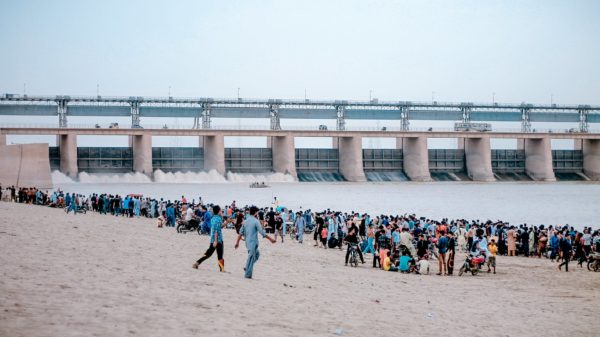2018

WP 2018.21 2018 FAERE Prize (ex aequo)
The impacts of energy prices on industrial foreign investment location: evidence from global firm level data
Aurélien Saussay – Misato Sato
Abstract
This paper analyzes the role of energy prices in firms’ investment location decisions in the manufacturing sector. Building on the application of discrete choice theory to the firm location problem, we specify a conditional logit model linking bilateral foreign direct investment (FDI activity to relative energy prices. We then empirically test this link using a global dataset of M&A deals in the manufacturing sector covering 41 countries between 1995 and 2014, using econometric techniques adapted from the estimation of gravity models. The results suggest that upon deciding to invest, firms are attracted to regions that have lower energy prices. However, counterfactual simulations reveal that unilateral implementation of a $50/tCO2 carbon tax by various coalitions of countries is expected to have limited negative impact on the attractiveness of economies to foreign industrial investments. Hence, our results support the pollution haven effect, but find the magnitude is limited and could be addressed with targeted measures in the most energy intensive sectors.
WP 2018.20 Time Rebound Effect in Households’ Energy Use: Theory and Evidence
Kenichi Mizobuchi – Hiroaki Yamagami
Abstract
Time-saving (time-efficient) goods and services are increasingly developed and diffused. Such goods and services increase the disposable time for households, and the time saved may be allocated to other activities consuming energy/electricity. The present study sets a simple theoretical model and shows a mechanism, called the time rebound effect, with which time-saving goods increase energy consumption through household behaviors. Furthermore, we reveal empirical evidence for this model by conducting a Japanese household survey. In particular, our analysis shows that the time rebound effect occurs on using the dishwasher, clothes dryer, or a net ordering/delivery service. However, its impact is very small: the extra electricity usage is about 1.4% of the daily usage at most.
WP 2018.19 Emissions Trading with Rolling Horizons
(new version)
Simon Quemin – Raphaël Trotignon
Abstract
We build a model of competitive emissions trading under uncertainty with supply-side control. Firms can use rolling planning horizons to deal with uncertainty and can also exhibit bounded responsiveness to the control. We tailor the model to the EU ETS, calibrate it to 2008-2017 market developments and find that a rolling horizon is able to reconcile the banking dynamics with discount rates implied from futures’ yield curves. We evaluate the 2018 market reform, decompose the impacts of its main features and quantify how they hinge on the firms’ horizon and responsiveness. We highlight important implications for policy design and evaluation.
WP 2018.18 Marchés internationaux de droits à polluer et taxes locales sur les biens polluants
Forthcoming in L’Actualité économique – Revue d’analyse économique.
Julien Daubanes – Pierre Lasserre
Abstract
The interest of international markets for pollution rights lies in their potential to achieve a pollution reduction objective in an efficient manner. Unfortunately, the tendency of participating countries to tax polluting goods locally undermines this potential. We propose a model to examine the interest of countries participating in a market for rights to pollute in taxing the good that generates pollution. In particular, this interest depends on the initial distribution of rights among participating countries. We show how rights should be allocated to the different participating countries in order to ensure market efficiency. These optimal allocations require that a sufficiently large fraction of rights be distributed free of charge rather than auctioned.
WP 2018.17 Tax Exemptions of Ethical Products Revisited
Dina Kassab
Abstract
Corporate social responsibility (CSR) activities, being viewed as the corporate’s provision of a public good, enable tax exemptions in many economies. This paper examines whether these tax exemptions are justified, given the nature of interdependence between the public good provided by the firm and that provided through the government, and the form in which the exemptions – or taxes – are best imposed. In our theoretical analysis, we model a profit-maximizing firm, in a monopoly setup, in the presence of a continuum of consumers with heterogeneous preferences towards the CSR content of the private good they purchase. Consumption of the ethical product is further assumed to confer a reputational gain that increases as the pool of consumers purchasing the good narrows. The analysis suggests that tax exemptions ought to be accorded to CSR activities when private and public investments are perfect substitutes, and an ad valorem subsidy is welfare superior to a specific one. However, when the firm’s CSR investment complements the government’s provision, the firm’s product should be subject to taxes when there is a sufficiently large marginal willingness to pay for such activities. An ad valorem tax serves as a purely corrective device to balance the relative shares of the firm and the government in the public good provision whilst a specific tax redistributes surplus form the firm to consumers while increasing total welfare in the process. Conditions for optimality of each tax instrument are discussed.
WP 2018.16 Foreign Demand and Greenhouse Gas Emissions: Empirical Evidence with Implications for Leakage
Geoffrey Barrows – Hélène Ollivier
Abstract
With asymmetric climate policies, regulation in one country can be undercut by emissions growth in another. Previous research finds evidence that regulation erodes the competitiveness of domestic firms and leads to higher imports, but increased imports need not imply increased emissions if domestic sales are jointly determined with export sales or if emission intensity of manufacturing adjusts endogenously to foreign demand. In this paper, we estimate for the first time how production and emissions of manufacturing firms in one country respond to foreign demand shocks in trading partner markets. Using a panel of large Indian manufacturers and an instrumental variable strategy, we find that foreign demand growth leads to higher exports, domestic sales, production, and CO2 emissions, and slightly lower emission intensity. The results imply that a representative exporter facing the average observed foreign demand growth over the period 1995-2011 would have increased CO2 emissions by 1.39% annually as a result of foreign demand growth, which translates into 6.69% total increase in CO2 emissions from Indian manufacturing over the period. Breaking down emission intensity reduction into component channels, we find some evidence of product-mix effects, but fail to reject the null of no change in technology. Back of the envelope calculations indicate that environmental regulation that doubles energy prices world-wide (except in India) would only increase CO2 emissions from India by 1.5%. Thus, while leakage fears are legitimate, the magnitude appears fairly small in the context of India.
WP 2018.15 The Role of Individual Preferences in Explaining the Energy Performance Gap
Salomé Bakaloglou – Dorothée Charlier
Abstract
The aim of this research is to understand the role of socio-economic characteristics and individual preferences to explain the energy performance gap in the residential sector. The gap reflects the difference between theoretical energy consumption of home assessed by engineering models and real energy consumption. Using the ratio of the two consumptions as a measure of the gap, we perform a quantile regression to tease out the effects of preferences on the entire distribution of the energy performance gap spectrum instead of focusing on the conditional average. As a result, this research provides an original contribution: depending on the sense of the gap, our findings suggest that some significant drivers are individual preferences for comfort over economy, explaining until 12% of the gap variability, and poverty. In such a context, some warnings to public authorities are provided regarding the issues of rebound effect and household welfare.
WP 2018.14 A dynamic model of recycling with endogenous technological breakthrough
Forthcoming in Resource and Energy Economics.
Gilles Lafforgue – Luc Rouge
Abstract
We develop a growth model in which the use of a non-renewable resource yields waste. Recycling waste produces materials of poor quality. These materials can be reused for production only once a dedicated R&D activity has made their quality reach an exogenous minimum threshold. The economy then switches to a fully recycling regime. We refer to this switch as the technological breakthrough. We analyze the optimal trajectories of the economy and present the Ramsey Keynes and Hotelling conditions in this context. We characterize the determinants of the date of the breakthrough, which is endogenous, as well as the discontinuity in the variables’ paths that is induced by this breakthrough. We show, in particular, that the availability of a recycling technology leads to a more intense exploitation of the resource and possibly to lower levels of consumption before the breakthrough.
WP 2018.13 How shifting investment towards low-carbon sectors impacts employment: three determinants under scrutiny
Published in Energy Economics (2018), 75, 464-483.
Quentin Perrier – Philippe Quirion
Abstract
The threat of climate change requires redirecting investment towards low-carbon sectors, and this shift generates heated debates about its impact on employment. Many studies exist, most of
which use CGE or Input-Output (IO) models. However, the economic mechanisms at play remain unclear. This paper disentangles the channels of job creation and studies to what extent the results of simpler IO models diverge from CGE results. Using stylized models, we show that a shift in investment creates jobs in IO if it promotes sectors with a higher share of labour in value added, lower wages or a lower import rate. In CGE, the first two channels also yield job creation, but there is no positive impact of targeting low-imports sectors – unless these do not export.
Then we undertake a numerical analysis of two policies: the installation of solar panels and weatherization in France. Both policies have a positive effect on employment, in both models, due to the high share of labour and low wages in these sectors. IO results provide a good approximation of CGE results for solar (-14% to +34%) and are slightly higher for weatherization (+22% to +87%).
Our findings challenge the idea that renewables boost employment by reducing imports, but they also suggest that a double dividend can be achieved by encouraging low-carbon labour-intensive sectors.
WP 2018.12 Competitive Advantage in the Renewable Energy Industry: Evidence from a Gravity Model
Published in Renewable energy (2018), 131, 472-481.
Onno Kuik – Frédéric Branger – Philippe Quirion
Abstract
Pioneering domestic environmental regulation may foster the creation of new eco-industries. These industries could benefit from a competitive advantage in the global market place. This article examines empirical evidence of the impact of domestic renewable energy policies on the export performance of renewable energy products (wind and solar PV). We use a gravity model of international trade with a balanced dataset of 49 (for wind) and 40 (for PV) countries covering the period 1995-2013. The stringency of renewable energy policies are proxied by installed capacities. Our econometric model shows evidence of competitive advantage positively correlated with domestic renewable energy policies, sustained in the wind industry but brief in the solar PV industry. We suggest that the reason for the dynamic difference lies in the underlying technologies involved in the two industries.
WP 2018.11 From residential energy demand to fuel poverty : income-induced non-linearities in the reactions of households to energy price fluctuations
Forthcoming in Canadian Journal of Economics.
Dorothée Charlier – Sondès Kahouli
Abstract
In this paper, we propose a panel threshold regression (PTR) model to empirically test the sensitivity of French households to energy price fluctuations – as measured by the elasticity of residential heating energy prices – and to analyze the overlap between their income and fuel poverty profiles. The PTR model allows to test for the non-linear effect of income on the reactions of households to fluctuations in energy prices. Thus, it can identify specific regimes differing by their level of estimated price elasticities. Each regime represents an elasticity-homogeneous group of households. The number of these regimes is determined based on an endogenously PTR-fixed income threshold. Thereafter, we analyze the composition of the regimes (i.e. groups) to locate the dominant proportion of fuel-poor households and analyse their monetary poverty characteristics.
Results show that, depending on the income level, we can identify two groups of households that react differently to residential energy price fluctuations and that fuel-poor households belong mostly to the group of households with the highest elasticity. By extension, results also show that income poverty does not necessarily mean fuel poverty.
In terms of public policy, we suggest focusing on income heterogeneity by considering different groups of households separately when defining energy efficiency measures. We also suggest paying particular attention to targeting fuel-poor households by examining the overlap between fuel and income poverty.
WP 2018.10 2018 FAERE Prize (ex aequo)
The vertical and horizontal distributive effects of energy taxes: A case study of a French policy
Thomas Douenne
Abstract
This paper proposes a micro-simulation assessment of the distributional impacts of the French carbon tax. It shows that the policy is regressive, but could be made progressive by redistributing the revenue through a flat-recycling. However, it would still generate large horizontal distributive effects and harm an important share of low-income households. The determinants of the tax incidence are characterized precisely, and alternative targeted transfers are simulated on this basis. The paper shows that given the importance of unobserved heterogeneity in the determinants of energy consumption, horizontal distributive effects are much more difficult to tackle than vertical ones.
WP 2018.09 The supply of non-renewable resources
Published in Canadian Journal of Economics (2019), 52(3), 1084-1111.
Julien Daubanes – Pierre Lasserre
Abstract
There exists no formal treatment of non-renewable resource (NRR) supply, systematically deriving quantity as function of price. We establish instantaneous restricted (fixed reserves) and unrestricted NRR supply functions. The supply of a NRR at any date and location depends not only on the local contemporary price of the resource but also on prices at all other dates and locations. Besides the usual law of supply, which characterizes the own-price effect, cross-price effects have their own law. They can be decomposed into a substitution effect and a stock compensation effect. We show that the substitution effect always dominates: A price increaseat some point in space and time causes NRR supply to decrease at all other points.
Our new—although orthodox—setting takes into account not only NRR supply limitations, but also the heterogeneity of NRR deposits, and the endogeneity of their development and opening. Our analysis extends to NRRs the partial-equilibrium analysis of demand and supply policies. Thereby, it provides a generalization of results about policy-induced changes on NRR markets.
WP 2018.08 Open space preservation in an urbanization context
Camille Régnier
Abstract
The objective of this paper is to address the question of open space preservation in an urbanization context. We study the possibility of preserving two different types of open spaces, large open spaces at cities’ outskirt and small intra-urban open spaces. Thus we contribute to the debate of land sharing versus land sparing in a urban context. We analyze these questions by way of a theoretical microeconomics framework taking into account both households’ preferences for open space and regulator’s interest for the preservation of ecosystem services. We compare land use patterns at private equilibrium and when the social planner maximizes social welfare.
WP 2018.07 Energy efficiency as a credence good : A review of informational barriers to building energy savings
Forthcoming in Energy Economics.
Louis-Gaëtan Giraudet
Abstract
Information problems have early been suspected to be the main barrier to energy-efficiency investment. I review the vast yet piecemeal research that has been carried out since. Focusing on energy efficiency in buildings, I organize the review around the concept of credence good: just like that of auto repairs or taxi rides, the quality of energy-efficiency measures is never fully revealed to the buyer; as a result, it is subject to multiple information asymmetries. My first contribution is to distinguish symmetric-information problems from information asymmetries. The former arise when information is either incomplete or imperfect, but equally shared by contracting parties; as non-market failures, these can be addressed by technological progress and insurance markets. My second contribution is to give structure to the information asymmetries associated with energy efficiency by disentangling screening, signalling, moral hazard and price discrimination within a variety of contractual relationships involving buyers and sellers, owners and renters, and borrowers and lenders. I find evidence of information asymmetries to be compelling in landlord-tenant relationships, unclear in real estate markets, and scarce in retrofit contracting and financing. I conclude by discussing the intricacies between informational and behavioural problems in energy-efficiency decisions.
WP 2018.06 Economic growth determinants in countries with blue carbon: Natural capital as a limiting factor?
Laura Recuero Virto – Denis Couvet
Abstract
In this paper, we explore the determinants of economic growth in countries with blue carbon, i.e. countries with open access to the sea and high mangrove mitigation potential, to explore the effects of potential anthropogenic pressures on these coastal ecosystems. For this purpose, we build a data set with 23 countries with blue carbon across different regions in the world for the period 1960-2009. We estimate the augmented Solow model including new growth theories, under a Bayesian moving average methodology that accounts for uncertainty. We find evidence that the neoclassical theory (the initial income and the investment in physical capital variables) as well as the demography, the macroeconomic policy and the natural capital theories are the robust determinants of economic growth in countries with blue carbon. In contrast, the investment in physical capital variable, and the macroeconomic policy and the natural capital theories are not relevant when using a worldwide sample of countries. Our contribution is twofold. Firstly, natural capital exploitation, together with the high fertility rates in countries with blue carbon, highlight the potential anthropogenic pressures that coastal areas with blue carbon can be subject to such as land conversion for agriculture or aquaculture, farming run-offs, over-exploitation of blue carbon resources, urbanization, uncontrolled sewage and public works which, in turn, can degrade blue carbon ecosystems. Given these findings, we highlight the role of central governments to provide incentives for the protection of these nature-based solutions at the level of local policy makers and communities, and of international financial institutions to provide financial support for such initiatives in the developing countries that are represented in our data set. Secondly, our results on the role of natural capital on economic growth is largely consistent with the findings in the empirical literature on the economic growth determinants in developing countries. Indeed, compared to an average country the value of national natural capital per capita is reduced by more than half and there is evidence in the empirical literature that this is limiting factor for economic growth. In addition, there is also empirical evidence that a too strong economic dependence on national natural capital, almost two times higher than in an average country in our case, has a negative impact on economic growth.
WP 2018.05 Energy Consumption in the French Residential Sector: How Much do Individual Preferences Matter?
A paraître dans The Energy Journal.
Salomé Bakaloglou – Dorothée Charlier
Abstract
The aim of this research is to understand the weight of preference heterogeneity in explaining energy consumption in French homes. Using a discrete-continuous model and the conditional mixed-process estimator (CMP) allows us to tackle two potential endogeneities in residential energy consumption: energy prices and the choice of equipment. As a major contribution, we provide evidence that preferences for comfort over energy savings do have significant direct and indirect impacts on energy consumption, especially for high-income households. Preferring comfort over economy or one additional degree of heating implies an average energy overconsumption of 10% and 7.8% respectively, up to 36% for high-income households. Our results strengthen the belief that household heterogeneity is a substantial factor in explaining energy consumption and could have meaningful implications for the design of public policy tools aimed at reducing energy consumption in the residential sector.
WP 2018.04 Tarification incitative et gestion des déchets ménagers : études du comportement des collectivités locales françaises
Amandine Gnonlonfin – Yusuf Kocoglu
Abstract
Although the evidence of the incentive-based pricing effectiveness to reduce the production of Municipal Solid Waste (MSW) and to increase the recycling, its adoption in France has been barely developed over the two last decades. This paper analyses the determinants of incentivebased pricing adoption by French local governments. We investigate the effect of the MSW management cost on the decision of the local government in two ways. First we estimate the effect of the variation of the MSW management total cost on the probability to observe an incentive-based pricing and second, we estimate the effect of the incentive-based pricing on the MSW management total cost. Results highlight that the decision of the local government is subjected to the cost-benefit analysis and the decision of neighboring local governments. Further, results show that the French regulation has skewed the cost-benefit analysis of local government and consequently has slow down incentive-based pricing adoption.
WP 2018.03 The determinants of economic growth in countries with high marine biodiversity: Effects of potential anthropogenic pressures on the marine environment
Laura Recuero Virto – Denis Couvet – Frédéric Ducarme
Abstract
In this paper, we explore the economic growth determinants in 74 countries with high marine biodiversity for the period 1960-2009 through methodologies that take into account theory and specification uncertainty and the presence of multiple growth regimes. We find, firstly, that neoclassical (income), demography, macroeconomic policy, natural capital, fractionalisation and institutions theories are robust determinants of economic growth in these coastal countries. These results suggest that a country’s capacity to deal with marine biodiversity is associated with factors that impact economic growth. Secondly, in contrast with worldwide data sets, macroeconomic policies and natural capital are additional robust determinants of economic growth. There is strong historical evidence on the role of macroeconomic policies and non-renewable natural resources in trade flows and economic growth in coastal countries. Both factors, together with demography, highlight the pressures that coastal areas can be subject to such as construction and public works, population growth and urbanisation which, in turn, may degrade marine biodiversity. In fact, compared to other countries, coastal countries with high marine biodiversity have higher fertility rates, higher international trade exchanges, greater government consumption and lower institutional endowments. Thirdly, we find that education plays an important role in these countries. The rate of economic convergence increases with the level of education. Moreover, education and investment in physical capital have a significant and positive impact on economic growth in countries with very high levels of marine biodiversity. All together, our results suggest that diversifying away from natural capital wealth by investing in education and, more generally, in intangible capital can enhance economic growth, particularly in countries with very high levels of marine biodiversity. In turn, this structural change can contribute to remove pressure from marine biodiversity hotspots, mainly through lower fertility rates as education increases and lower dependence on natural capital exports via coastal areas.
WP 2018.02 Do Entrepreneurship Policies Work? Evidence from 460 Start-Up Program Competitions Across the Globe
Geoffrey Barrows
Abstract
Many organizations around the world implement programs designed to encourage entrepreneurship, including grant prize awards, accelerator programs, incubators, etc. The goal of these programs is to supply entrepreneurs with early-stage support and visibility to help develop ideas and attract capital; but, if capital markets are efficient, good business ideas should find funding anyways. In this paper, I present evidence from the first global-scale, quasi-experimental study of whether entrepreneurship programs improve outcomes for start-up firms. I employ a regression discontinuity design to test whether winners of start-up program competitions perform better ex-post than losers, where the threshold rank for winning the competition provides exogenous variation in program participation. With 460 competitions across 113 countries and over 20,000 competing firms, I find that winning a competitions increases the probability of firm survival by 64%, the total amount of follow-on financing by $260,000 USD, and total employment by 47%, as well as other web-based metrics of firm success. Impacts are driven by medium-size prize competitions, and are precisely estimated both in countries where the costs of starting a business are low and where these costs are high. These results suggest that capital market frictions indeed prohibit start-up growth in many parts of the world.
WP 2018.01 Unequal vulnerability to climate change and the transmission of adverse effects through international trade
Karine Constant – Marion Davin
Abstract
In this paper, we consider the unequal distribution of climate change damages in the world
and we examine how the underlying costs can spread from a vulnerable to a non-vulnerable country through international trade. To focus on such indirect effects, we treat this topic in a North-South trade overlapping generations model in which the South is vulnerable to the damages entailed by global pollution while the North is not. We show that the impact of climate change in the South can be a source of welfare loss for northern consumers, in both the short and the long run. In the long run, an increase in the South’s vulnerability can reduce the welfare in the North economy even in the case in which it improves its terms of trade. In the short run, the South’s vulnerability can also represent a source of intergenerational inequity in the North. Therefore, we emphasize the strong economic incentives for non-vulnerable -and a fortiori less-vulnerable – economies to reduce the climate change damages on – more – vulnerable countries.






